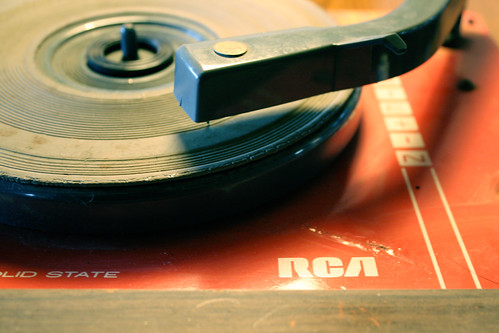As adolescence creeps upon us students, there are definite major changes in our mental set-up. One of those major changes is our fascination towards loud rock music. There’s nothing like a roll and a crash by a good drummer or long mindless amazing play on the fret-board or a foot-tapping riff playing in the background.
Popularity of rock among Indian adolescents, and absolute no knowledge in Indian classical and semi-classical music is on the up perhaps due to increasing western influences. This is demonstrated by the following exercise. Three students from the age group of 14-18 years were asked two questions, one on Indian music and another on rock music. Intentionally, the Indian question chosen was straightforward while the one on rock was tricky. The results were startling:
Q. Who is Ustad Ali Akbar Khan? Ans. Student 1: “Isn’t he that dude who plays the sitar?”; Student 2: “Ummm… I think he plays the tabla or something…”; Student 3: “I need Google for this one!”
For those of you who didn’t know either, Ustad Ali Akbar Khan is a legendary figure on the SAROD. As for the question on rock, “Did George Harrison ever play the sitar?” – surprisingly all three said, “Yes” without a shadow of a doubt.
Now, this exercise was not done to derogate anyone or to make people appreciate our cultural roots, it was just done to show how popular rock music has become among the youth, at the expense of Indian cultural music.
There are many sub-genres of rock itself. Very few listen to the “Heavy Metal” sub-genre, but those who do, are ardent fans. Heavy Metal bands are distinctly different from other rock cultures, with heavy drumming, complicated bass-lines and long guitar solos. The vocals are difficult to say the least, high-pitched and versatile; e.g. Iron Maiden, Metallica, Judas Priest, Deep Purple, AC DC, Led Zeppelin, Steppenwolf, Pantera, Motorhead, etc.
Then there are the Alternative Rock bands. They are characterised by a different kind of music altogether, with longer riffs, small or altogether absent solos, and faster and repetitive beats. The name “alternative” was coined in the 1980s to describe punk rock inspired bands that didn’t fit into the mainstream genres of that time. E.g. Melvins, The Cult, Tool, White Zombie, Linkin Park, System Of A Down, Trapt, Korn, etc.
The most up-and-coming sub-genre is Progressive Rock. Progressive rock artists reject the limitations of popular music and aspire to create music for serious listening, often aspiring to the sophistication of jazz and classical music, sometimes incorporating folk and world music influences in as well. E.g. Dream Theater, Kreator, Jethro Tull, Opeth, Porcupine Tree, Radiohead, Pink Floyd, etc. It is here that I should mention that Radiohead, Porcupine Tree and Pink Floyd can also be put in a sub-genre of Progressive Rock called “Psychedelic Progressive Rock”.
There are many more sub-genres of Rock which can be discussed like Death Metal, Black Metal, Goth Rock, Celtic Rock, etc. but the ones discussed above are the main sub-genres.
Talking about music can be exciting as well as time consuming but listening to music is the real deal. So try and get the following songs and listen to them over the next week: 1) Pink Floyd – Wish You Were Here; 2) Iron Maiden – Purgatory; 3) Linkin Park – Pushing Me Away; 4) Pantera – Cemetary Gates; 5) Cradle Of Filth – Nymphetamine; 6) Metallica – The Unforgiven III; 7)Evanescence – Haunted; 8) Dream Theater – Pull Me Under; 9) Cranberries – Zombie; 10) Radiohead – Creep
- Rijoy Bhaumik




No comments:
Post a Comment